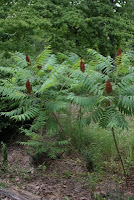It’s a melancholy feeling, reaching the end after over two years. I appreciate everyone who has read it all the way through, especially my friends who got Orson Wells’ed back at the beginning. A complete list of episodes (with links) will be going up shortly. I’ll also post diversions and an alternate episode from time to time.
A completely new story starts September 21.
Fall, year unknown
The Music of the Spheres
The universe, and all that is in it, dances to the cosmic vibration. Life, cultures, nations, civilizations — all follow the rhythm of birth, growth, reproduction, senescence, and death. Across the Earth, weather systems twirl to their own beat. Ice caps dance a two-step, forward and back, following yet-undiscovered astronomical pulsations.
Humans continue to be humans — seeking, loving, grasping, warring — until after a particularly brutal war, when the survivors agree to become something new. So begins a breeding program that lasts for millennia: they select for intelligence, disease-resistance, and non-aggression. The results are not perfect — nothing ever is — but good enough. War is yet studied, but only to explain the terrestrial scars that thousands of years have only softened. The neo-humans experiment with various civilizations — primitive, ecotechnic, industrial — even attempting spacefaring anew at one point. Fortunately, they discover an impending asteroid strike during this time, and the great rock is broken into hundreds of smaller rocks before impact. The dust in the air brings on a Little Ice Age, but the neo-humans know to keep their population below the earth’s carrying capacity. A generation of colorful sunrises and sunsets inspires new schools of art and poetry.
And the beat goes on.
FAR Manor is long gone and long forgotten. The minor figures who lived there as the end of an age drew near are also long forgotten, but their descendants yet roam the Earth. Kim’s art, Christina’s raw intelligence, the strength and compassion of Daughter Dearest, Rene’s and Serena’s storytelling, the music of The Boy and Pat, Ray’s rapport with animals… all express themselves across the new ages that come and go in their turns. Where FAR Manor once stood — an indeterminate point in a world where the Greenwich Observatory no longer marks longitude — has been forest, city, desert, a lakeshore, and grassland.
After ten thousand years pass, we come to a particular sunrise. The land is once again a mixed forest, familiar to all of us except in the details… for example, the people now grow their houses from living trees — they would be aghast at the waste of cutting trees into pieces and building a large wooden box from the pieces. Their roads wind through the trees, following the land — they would call it madness to lay roads in straight lines and alter the land to support them. You or I might think their life primitive in comparison to ours, but we would be wrong. A technology called bioinstrumentation — which had its beginnings in near-prehistoric times, using canaries to detect methane in coal mines and dogs to find illicit drugs — has been refined through the millennia until communication devices and lighting, among other things, really do grow on trees.
The morning is cool, and a youth emerges from one of the houses that make up this loose community. He climbs up the trunk — for a moment he resembles a spider, or perhaps a spider monkey, but his long limbs and fingers are normal for his people — and eats a quiet breakfast on a sturdy limb. Nobody else stirs as he drops to the ground. He looks at the house where he has spent much of his life, and spends a few minutes on the morning necessities: making sure the glow lamps are hung where they can recharge in the afternoon sun, checking the water in the catch basin, fertilizing the roots. He then goes back in, emerges with a cloth sack and a cape for the chill to come, and jogs to the road. This is the custom of the people: after seventeen years, they begin a time of wandering. Some find a mate and return. Some find a mate and stay. Others make a life of wandering, with or without a mate.
At the edge of the community, an old woman stops him. “Who are you?” she asks.
“I go to learn that,” he says.
“And where do you go?”
“East. I will walk toward the rising sun until I come to the sea.”
“And what will you do there?”
“I will learn who I am.”
“Will you return?”
“If Father God and Mother Earth will it.”
The old woman smiles. “Then go, child, with our blessings,” she says, and embraces her grandson for the final time.
“Thank you, grandmother.” He takes her wandering gifts: a walking stick, food, and a water flask; then he blinks at the bright morning sun and sets off. When he looks back, he is alone. He smiles, hears music from beyond, and begins his journey with a dance.
THE END




















